- Home
- Advanced Packaging
- Anti-Counterfeit Packaging Market Size, Future Growth and Forecast 2033
Anti-Counterfeit Packaging Market Size, Future Growth and Forecast 2033
Anti-Counterfeit Packaging Market Segments - by Technology (RFID, Barcode, Hologram, Taggants, Others), End-User (Food & Beverage, Healthcare & Pharmaceuticals, Electronics & Automotive, Clothing & Apparel, Others), Material (Paper & Paperboard, Plastic, Metal, Glass, Others), and Region (Asia Pacific, North America, Latin America, Europe, and Middle East & Africa) - Market Dynamics, Growth Opportunities, Strategic Drivers, and PESTLE Outlook (2025–2033)
Anti-Counterfeit Packaging Market Outlook
The Anti-Counterfeit Packaging market was valued at $105 billion in 2024 and is projected to reach $184 billion by 2033, growing at a CAGR of 6.5% during the forecast period 2025–2033. This market is driven by the increasing need for brand protection and the rising consumer awareness regarding the authenticity of products. The proliferation of counterfeit goods, especially in the pharmaceutical and food & beverage sectors, has necessitated the adoption of advanced packaging solutions. Technological advancements in packaging, such as the integration of RFID and barcode systems, have further propelled market growth. Additionally, stringent government regulations aimed at curbing counterfeiting activities are expected to bolster the demand for anti-counterfeit packaging solutions.

Report Scope
| Attributes | Details |
| Report Title | Anti-Counterfeit Packaging Market Size, Future Growth and Forecast 2033 |
| Base Year | 2024 |
| Historic Data | 2017-2023 |
| Forecast Period | 2025-2033 |
| Number of Pages | 134 |
| Technology | RFID, Barcode, Hologram, Taggants, Others |
| End-User | Food & Beverage, Healthcare & Pharmaceuticals, Electronics & Automotive, Clothing & Apparel, Others |
| Material | Paper & Paperboard, Plastic, Metal, Glass, Others |
| Region | Asia Pacific, North America, Latin America, Europe, Middle East & Africa |
| Customization Available | Yes* |
Opportunities & Threats
One of the significant opportunities in the anti-counterfeit packaging market lies in the growing e-commerce sector. As online shopping continues to surge, the risk of counterfeit products reaching consumers has increased, prompting e-commerce platforms to adopt robust anti-counterfeit measures. This trend is expected to drive the demand for innovative packaging solutions that can ensure product authenticity and traceability. Furthermore, the increasing adoption of smart packaging technologies, such as QR codes and NFC tags, presents lucrative opportunities for market players to enhance their product offerings and gain a competitive edge.
Another opportunity is the rising demand for anti-counterfeit packaging in emerging economies. As these regions experience economic growth and increased consumer spending, the demand for branded and authentic products is on the rise. This has led to a heightened focus on anti-counterfeit measures to protect brand integrity and consumer trust. Companies operating in these markets can capitalize on this trend by offering cost-effective and efficient packaging solutions tailored to the specific needs of these regions.
However, the market faces certain restraints, such as the high cost of implementing advanced anti-counterfeit technologies. Small and medium-sized enterprises (SMEs) may find it challenging to invest in these solutions due to budget constraints. Additionally, the lack of awareness and understanding of anti-counterfeit technologies among end-users can hinder market growth. To overcome these challenges, market players need to focus on educating consumers and businesses about the benefits of anti-counterfeit packaging and developing affordable solutions that cater to the needs of SMEs.
Market Share Analysis
The competitive landscape of the anti-counterfeit packaging market is characterized by the presence of several key players who are actively engaged in product innovation and strategic partnerships to strengthen their market position. The market is moderately fragmented, with companies focusing on expanding their product portfolios and enhancing their technological capabilities to meet the evolving demands of end-users. The leading players in the market include Avery Dennison Corporation, CCL Industries Inc., 3M Company, SICPA Holding SA, and Zebra Technologies Corporation, among others.

Avery Dennison Corporation holds a significant market share due to its extensive range of labeling and packaging solutions that incorporate advanced anti-counterfeit technologies. The company's strong focus on research and development has enabled it to introduce innovative products that cater to various industries, including pharmaceuticals, food & beverage, and electronics. CCL Industries Inc. is another major player in the market, known for its comprehensive range of security labeling solutions that help brands protect their products from counterfeiting and tampering.
3M Company is renowned for its cutting-edge security technologies, including holograms and tamper-evident labels, which are widely used in the anti-counterfeit packaging market. The company's global presence and strong distribution network have contributed to its robust market position. SICPA Holding SA specializes in providing secure authentication and traceability solutions, making it a key player in the anti-counterfeit packaging industry. The company's expertise in security inks and integrated systems has made it a preferred choice for governments and businesses worldwide.
Zebra Technologies Corporation is a leading provider of barcode and RFID solutions that are integral to anti-counterfeit packaging. The company's innovative products and solutions enable businesses to enhance supply chain visibility and ensure product authenticity. Other notable players in the market include DuPont, Systech International, and AlpVision SA, each contributing to the market's growth through their unique offerings and strategic initiatives.
Key Highlights
- The anti-counterfeit packaging market is projected to grow at a CAGR of 6.5% from 2025 to 2033.
- Technological advancements, such as RFID and barcode systems, are driving market growth.
- Stringent government regulations are bolstering the demand for anti-counterfeit packaging solutions.
- The e-commerce sector presents significant opportunities for market expansion.
- Emerging economies are witnessing increased demand for anti-counterfeit packaging.
- High implementation costs pose a challenge for small and medium-sized enterprises.
- Leading players are focusing on product innovation and strategic partnerships.
- Smart packaging technologies, such as QR codes and NFC tags, are gaining traction.
- Consumer awareness regarding product authenticity is on the rise.
Top Countries Insights
In the United States, the anti-counterfeit packaging market is valued at approximately $30 billion, with a CAGR of 5%. The country's stringent regulations and high consumer awareness drive the demand for advanced packaging solutions. The presence of major market players and technological advancements further contribute to market growth.

China's market is experiencing rapid growth, with a CAGR of 8% and a market size of $20 billion. The country's booming e-commerce sector and increasing counterfeit activities have led to a heightened focus on anti-counterfeit measures. Government initiatives to combat counterfeiting are also playing a crucial role in market expansion.
Germany, with a market size of $15 billion and a CAGR of 6%, is a key player in the European anti-counterfeit packaging market. The country's strong manufacturing sector and emphasis on product quality and safety drive the demand for innovative packaging solutions. The presence of leading packaging companies further strengthens the market.
India's market is valued at $10 billion, with a CAGR of 9%. The country's growing middle class and increasing consumer spending on branded products are driving the demand for anti-counterfeit packaging. The government's efforts to curb counterfeit activities and promote product authenticity are also contributing to market growth.
In Brazil, the market is valued at $8 billion, with a CAGR of 7%. The country's expanding retail sector and rising consumer awareness about counterfeit products are fueling the demand for advanced packaging solutions. The government's focus on improving supply chain transparency is also supporting market growth.
Evolving Market Dynamics (2018–2024) and Strategic Foresight (2025–2033)
| Metrics | 2018–2024 | 2025–2033 |
|---|---|---|
| CAGR | 5.5% | 6.5% |
| Market Size Evolution | $85 billion to $105 billion | $105 billion to $184 billion |
| Segment Distribution Shifts | Increased demand in pharmaceuticals and food & beverage | Growth in e-commerce and emerging economies |
| Regional Contribution Changes | North America and Europe dominated | Asia Pacific and Latin America gaining traction |
| Technological Impact Factors | Adoption of RFID and barcode systems | Integration of smart packaging technologies |
| Client Demand Transformations | Focus on brand protection | Emphasis on product authenticity and traceability |
Anti-Counterfeit Packaging Market Segments Insights

Technology Analysis
The technology segment in the anti-counterfeit packaging market is primarily driven by the increasing adoption of RFID and barcode systems. These technologies offer enhanced product traceability and authentication, making them essential tools in combating counterfeiting. RFID technology, in particular, is gaining popularity due to its ability to provide real-time tracking and inventory management. The integration of these technologies into packaging solutions is expected to continue growing, driven by advancements in IoT and smart packaging. Companies are investing heavily in R&D to develop innovative solutions that cater to the specific needs of various industries, such as pharmaceuticals, food & beverage, and electronics.
Barcode technology remains a staple in the anti-counterfeit packaging market due to its cost-effectiveness and ease of implementation. The widespread use of barcodes across different sectors has made it a reliable solution for product authentication and supply chain management. The development of 2D barcodes and QR codes has further enhanced the capabilities of this technology, allowing for more detailed product information and consumer engagement. As consumer awareness regarding product authenticity continues to rise, the demand for barcode-based solutions is expected to increase, providing significant growth opportunities for market players.
End-User Analysis
The end-user segment of the anti-counterfeit packaging market is diverse, with significant demand coming from the food & beverage, healthcare & pharmaceuticals, electronics & automotive, and clothing & apparel industries. The healthcare & pharmaceuticals sector is a major contributor to market growth, driven by the need to ensure the safety and efficacy of medical products. The increasing prevalence of counterfeit drugs has led to stringent regulations and a heightened focus on anti-counterfeit measures, making this sector a key target for packaging solution providers.
The food & beverage industry is also a significant end-user of anti-counterfeit packaging solutions, as companies strive to protect their brand reputation and ensure consumer safety. The rising demand for packaged food products and the increasing incidence of food fraud have necessitated the adoption of advanced packaging technologies. In the electronics & automotive sector, the focus is on protecting high-value products from counterfeiting and ensuring supply chain transparency. The clothing & apparel industry is witnessing growing demand for anti-counterfeit packaging solutions, driven by the increasing prevalence of counterfeit fashion products and the need to protect brand integrity.
Material Analysis
The material segment in the anti-counterfeit packaging market includes paper & paperboard, plastic, metal, glass, and others. Paper & paperboard materials are widely used in packaging due to their versatility and sustainability. The increasing focus on eco-friendly packaging solutions has led to a rise in demand for paper-based materials, which can be easily integrated with anti-counterfeit technologies such as holograms and watermarks. Plastic materials, on the other hand, offer durability and flexibility, making them suitable for a wide range of applications. The development of biodegradable plastics is expected to drive growth in this segment, as companies seek to balance functionality with environmental responsibility.
Metal and glass materials are primarily used in high-value product packaging, where durability and tamper-evidence are critical. These materials are often combined with advanced security features, such as RFID tags and tamper-evident seals, to enhance product protection. The demand for metal and glass packaging is expected to remain steady, driven by the need for secure packaging solutions in industries such as pharmaceuticals and electronics. The 'others' category includes innovative materials and technologies that are emerging in the market, offering new opportunities for growth and differentiation.
Region Analysis
The regional analysis of the anti-counterfeit packaging market reveals significant growth opportunities across various geographies. North America and Europe have traditionally dominated the market, driven by stringent regulations and high consumer awareness. However, the Asia Pacific region is emerging as a key growth area, with countries like China and India experiencing rapid market expansion. The increasing prevalence of counterfeit products and the growing e-commerce sector in these regions are driving the demand for advanced packaging solutions.
Latin America and the Middle East & Africa are also witnessing increased demand for anti-counterfeit packaging, driven by economic growth and rising consumer awareness. The focus on improving supply chain transparency and combating counterfeit activities is expected to drive market growth in these regions. Companies operating in the anti-counterfeit packaging market are increasingly focusing on expanding their presence in these emerging markets, leveraging local partnerships and collaborations to enhance their market position.
Anti-Counterfeit Packaging Market Segments
The Anti-Counterfeit Packaging market has been segmented on the basis of
Technology
- RFID
- Barcode
- Hologram
- Taggants
- Others
End-User
- Food & Beverage
- Healthcare & Pharmaceuticals
- Electronics & Automotive
- Clothing & Apparel
- Others
Material
- Paper & Paperboard
- Plastic
- Metal
- Glass
- Others
Region
- Asia Pacific
- North America
- Latin America
- Europe
- Middle East & Africa
Latest Reports

The micro packaging market was valued at $1.2 billion in 2024 and is projected to reach $2.5 billion by 2033, growing at a CAGR of 8.5% during the forecast period 2025–2033.

The Anti-counterfeit Pharmaceuticals Packaging market was valued at $80 billion in 2024 and is projected to reach $150 billion by 2033, growing at a CAGR of 7.5% during the forecast period 2025–2033.
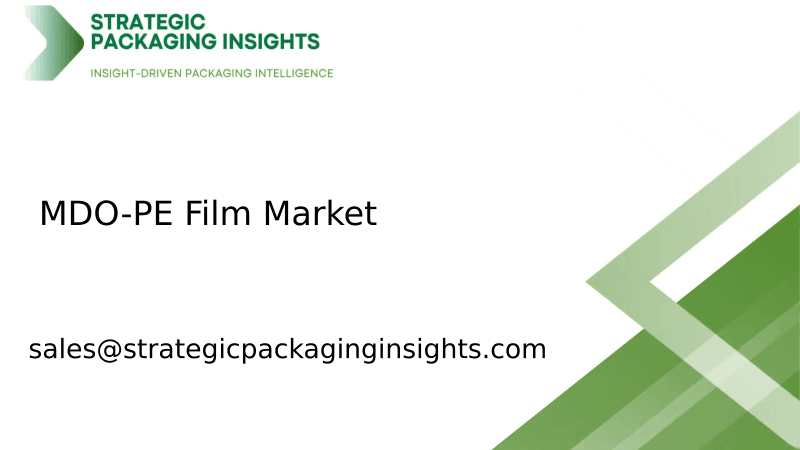
The MDO-PE Film market was valued at $3.5 billion in 2024 and is projected to reach $5.8 billion by 2033, growing at a CAGR of 5.2% during the forecast period 2025–2033.

The compostable pouch market was valued at $1.2 billion in 2024 and is projected to reach $3.5 billion by 2033, growing at a CAGR of 12.5% during the forecast period 2025–2033.

The Smart Packaging market was valued at $23.5 billion in 2024 and is projected to reach $43.5 billion by 2033, growing at a CAGR of 7.2% during the forecast period 2025–2033.

The pharmaceutical glass packaging market was valued at $14.5 billion in 2024 and is projected to reach $22.3 billion by 2033, growing at a CAGR of 4.9% during the forecast period 2025–2033.

The tray liners market was valued at $1.2 billion in 2024 and is projected to reach $2.3 billion by 2033, growing at a CAGR of 6.5% during the forecast period 2025–2033.

The Fan-Out Wafer Level Packaging (FOWLP) market was valued at $1.5 billion in 2024 and is projected to reach $4.2 billion by 2033, growing at a CAGR of 12.5% during the forecast period 2025–2033.

The cartoning machines market was valued at $3.5 billion in 2024 and is projected to reach $5.2 billion by 2033, growing at a CAGR of 4.5% during the forecast period 2025–2033.
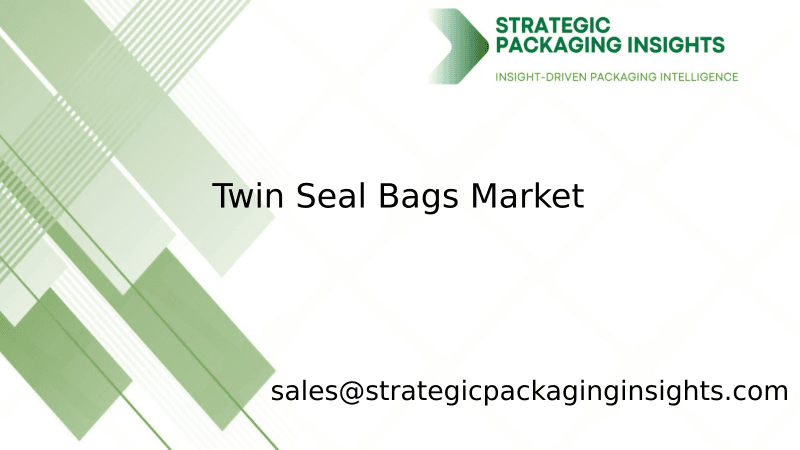
The Twin Seal Bags market was valued at $1.2 billion in 2024 and is projected to reach $2.3 billion by 2033, growing at a CAGR of 7.1% during the forecast period 2025–2033.
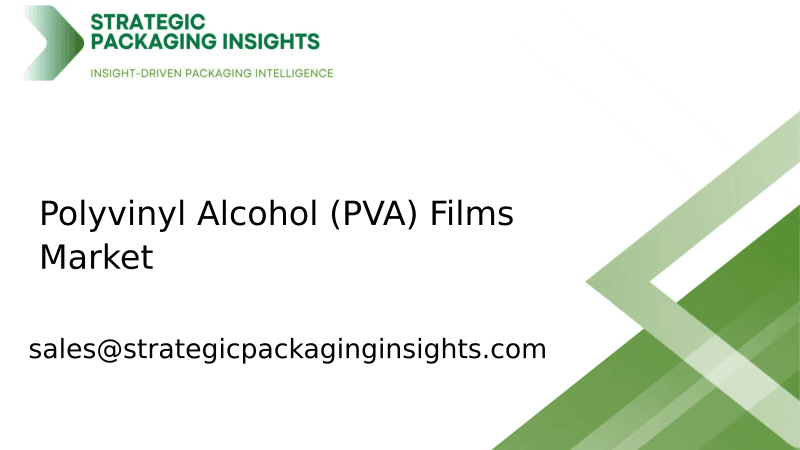
The Polyvinyl Alcohol (PVA) Films market was valued at $3.5 billion in 2024 and is projected to reach $5.8 billion by 2033, growing at a CAGR of 5.2% during the forecast period 2025–2033.

The Ready-To-Eat Product Packaging market was valued at $95 billion in 2024 and is projected to reach $145 billion by 2033, growing at a CAGR of 4.8% during the forecast period 2025–2033.

The Anti-Counterfeit Packaging market was valued at $105 billion in 2024 and is projected to reach $184 billion by 2033, growing at a CAGR of 6.5% during the forecast period 2025–2033.

The thermoformed skin packaging market was valued at $8.5 billion in 2024 and is projected to reach $13.2 billion by 2033, growing at a CAGR of 5.2% during the forecast period 2025–2033.

The packaging laminate market was valued at $25 billion in 2024 and is projected to reach $40 billion by 2033, growing at a CAGR of 5.5% during the forecast period 2025–2033.

The recycled cardboard market was valued at $8.5 billion in 2024 and is projected to reach $12.3 billion by 2033, growing at a CAGR of 4.2% during the forecast period 2025-2033.

The holographic lamination film market was valued at $2.5 billion in 2024 and is projected to reach $4.8 billion by 2033, growing at a CAGR of 7.2% during the forecast period 2025-2033.

The Horizontal Continuous Band Sealer market was valued at $1.2 billion in 2024 and is projected to reach $2.3 billion by 2033, growing at a CAGR of 7.1% during the forecast period 2025-2033.

The Orbital Stretch Wrapper market was valued at $1.2 billion in 2024 and is projected to reach $2.5 billion by 2033, growing at a CAGR of 8.5% during the forecast period 2025-2033.

The confectionery and bakery packaging market was valued at $25 billion in 2024 and is projected to reach $40 billion by 2033, growing at a CAGR of 5.5% during the forecast period 2025-2033.
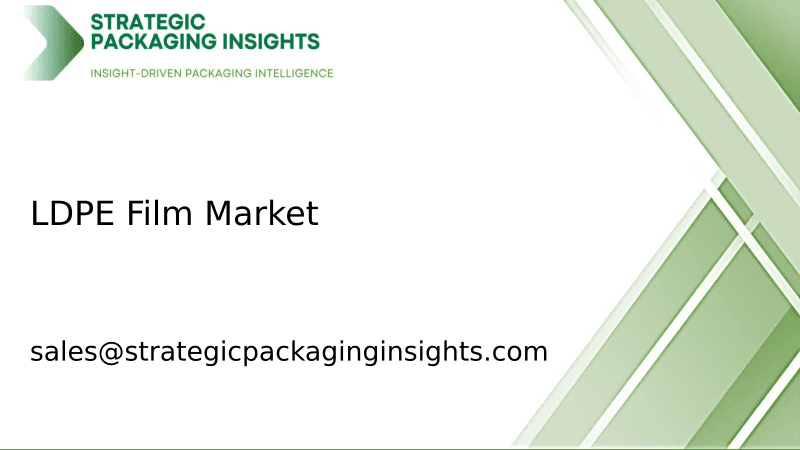
The LDPE Film market was valued at $35 billion in 2024 and is projected to reach $50 billion by 2033, growing at a CAGR of 4.2% during the forecast period 2025–2033.

The Bottle Case Packer market was valued at $1.2 billion in 2024 and is projected to reach $2.3 billion by 2033, growing at a CAGR of 7.1% during the forecast period 2025-2033.
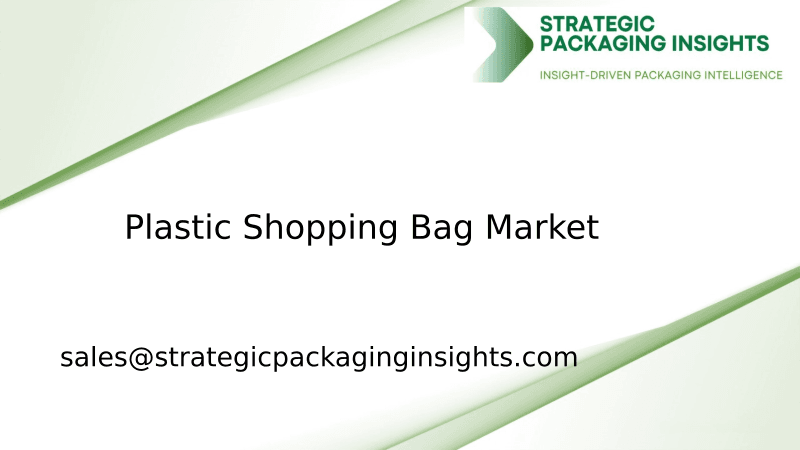
The plastic shopping bag market was valued at $4.5 billion in 2024 and is projected to reach $6.8 billion by 2033, growing at a CAGR of 4.5% during the forecast period 2025–2033.
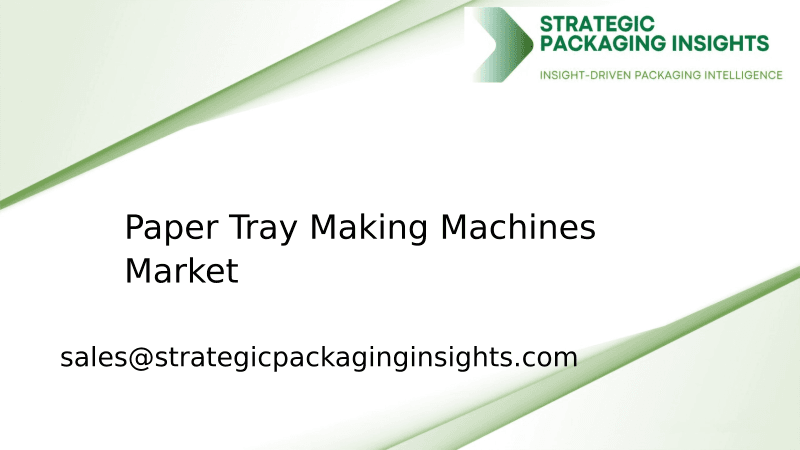
The Paper Tray Making Machines market was valued at $1.2 billion in 2024 and is projected to reach $2.5 billion by 2033, growing at a CAGR of 8.5% during the forecast period 2025–2033.
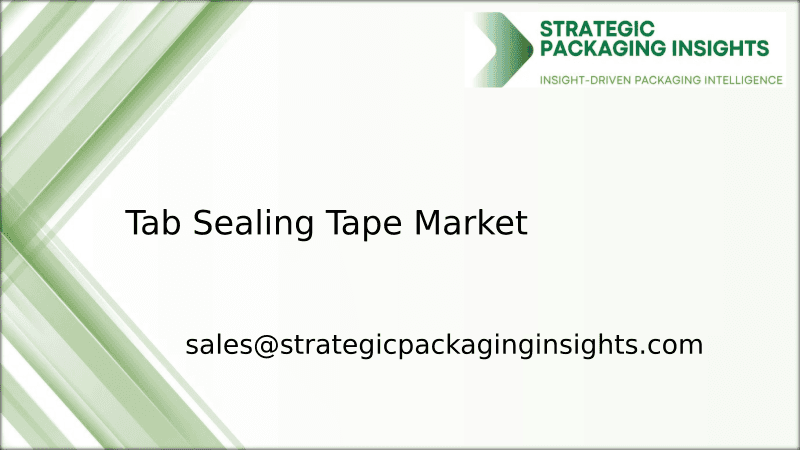
The Tab Sealing Tape market was valued at $3.5 billion in 2024 and is projected to reach $5.8 billion by 2033, growing at a CAGR of 5.2% during the forecast period 2025-2033.

The micro packaging market was valued at $1.2 billion in 2024 and is projected to reach $2.5 billion by 2033, growing at a CAGR of 8.5% during the forecast period 2025–2033.

The Anti-counterfeit Pharmaceuticals Packaging market was valued at $80 billion in 2024 and is projected to reach $150 billion by 2033, growing at a CAGR of 7.5% during the forecast period 2025–2033.

The MDO-PE Film market was valued at $3.5 billion in 2024 and is projected to reach $5.8 billion by 2033, growing at a CAGR of 5.2% during the forecast period 2025–2033.

The compostable pouch market was valued at $1.2 billion in 2024 and is projected to reach $3.5 billion by 2033, growing at a CAGR of 12.5% during the forecast period 2025–2033.

The Smart Packaging market was valued at $23.5 billion in 2024 and is projected to reach $43.5 billion by 2033, growing at a CAGR of 7.2% during the forecast period 2025–2033.

The pharmaceutical glass packaging market was valued at $14.5 billion in 2024 and is projected to reach $22.3 billion by 2033, growing at a CAGR of 4.9% during the forecast period 2025–2033.

The tray liners market was valued at $1.2 billion in 2024 and is projected to reach $2.3 billion by 2033, growing at a CAGR of 6.5% during the forecast period 2025–2033.

The Fan-Out Wafer Level Packaging (FOWLP) market was valued at $1.5 billion in 2024 and is projected to reach $4.2 billion by 2033, growing at a CAGR of 12.5% during the forecast period 2025–2033.

The cartoning machines market was valued at $3.5 billion in 2024 and is projected to reach $5.2 billion by 2033, growing at a CAGR of 4.5% during the forecast period 2025–2033.

The Twin Seal Bags market was valued at $1.2 billion in 2024 and is projected to reach $2.3 billion by 2033, growing at a CAGR of 7.1% during the forecast period 2025–2033.

The Polyvinyl Alcohol (PVA) Films market was valued at $3.5 billion in 2024 and is projected to reach $5.8 billion by 2033, growing at a CAGR of 5.2% during the forecast period 2025–2033.

The Ready-To-Eat Product Packaging market was valued at $95 billion in 2024 and is projected to reach $145 billion by 2033, growing at a CAGR of 4.8% during the forecast period 2025–2033.

The Anti-Counterfeit Packaging market was valued at $105 billion in 2024 and is projected to reach $184 billion by 2033, growing at a CAGR of 6.5% during the forecast period 2025–2033.

The thermoformed skin packaging market was valued at $8.5 billion in 2024 and is projected to reach $13.2 billion by 2033, growing at a CAGR of 5.2% during the forecast period 2025–2033.

The packaging laminate market was valued at $25 billion in 2024 and is projected to reach $40 billion by 2033, growing at a CAGR of 5.5% during the forecast period 2025–2033.

The recycled cardboard market was valued at $8.5 billion in 2024 and is projected to reach $12.3 billion by 2033, growing at a CAGR of 4.2% during the forecast period 2025-2033.

The holographic lamination film market was valued at $2.5 billion in 2024 and is projected to reach $4.8 billion by 2033, growing at a CAGR of 7.2% during the forecast period 2025-2033.

The Horizontal Continuous Band Sealer market was valued at $1.2 billion in 2024 and is projected to reach $2.3 billion by 2033, growing at a CAGR of 7.1% during the forecast period 2025-2033.

The Orbital Stretch Wrapper market was valued at $1.2 billion in 2024 and is projected to reach $2.5 billion by 2033, growing at a CAGR of 8.5% during the forecast period 2025-2033.

The confectionery and bakery packaging market was valued at $25 billion in 2024 and is projected to reach $40 billion by 2033, growing at a CAGR of 5.5% during the forecast period 2025-2033.

The LDPE Film market was valued at $35 billion in 2024 and is projected to reach $50 billion by 2033, growing at a CAGR of 4.2% during the forecast period 2025–2033.

The Bottle Case Packer market was valued at $1.2 billion in 2024 and is projected to reach $2.3 billion by 2033, growing at a CAGR of 7.1% during the forecast period 2025-2033.

The plastic shopping bag market was valued at $4.5 billion in 2024 and is projected to reach $6.8 billion by 2033, growing at a CAGR of 4.5% during the forecast period 2025–2033.

The Paper Tray Making Machines market was valued at $1.2 billion in 2024 and is projected to reach $2.5 billion by 2033, growing at a CAGR of 8.5% during the forecast period 2025–2033.

The Tab Sealing Tape market was valued at $3.5 billion in 2024 and is projected to reach $5.8 billion by 2033, growing at a CAGR of 5.2% during the forecast period 2025-2033.